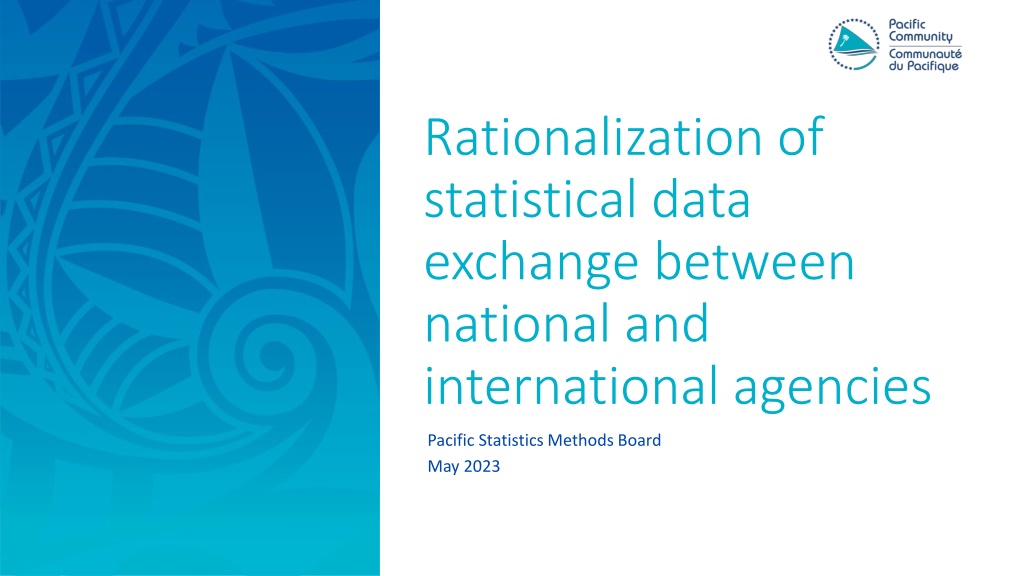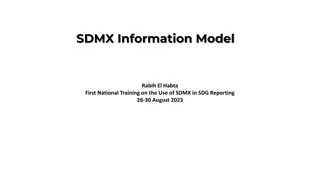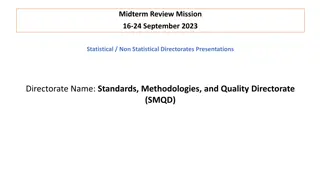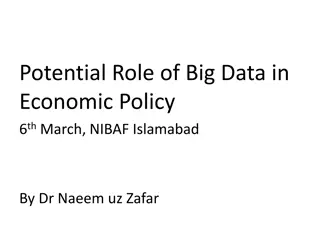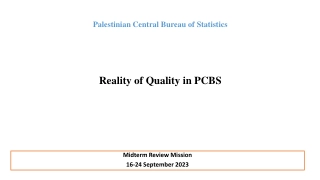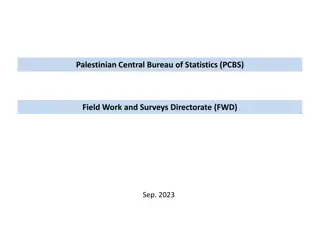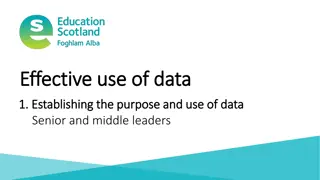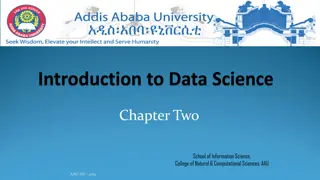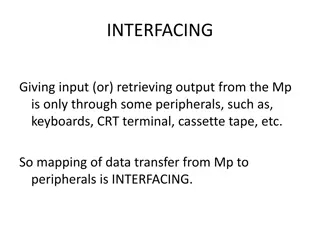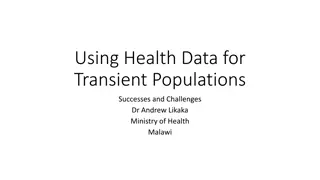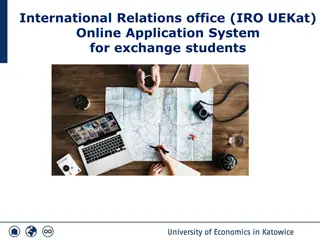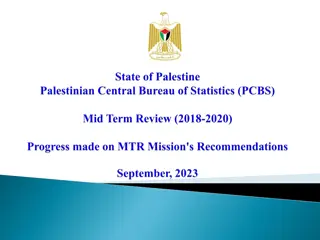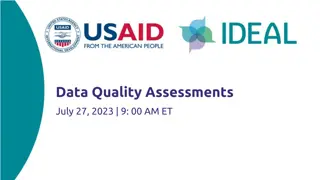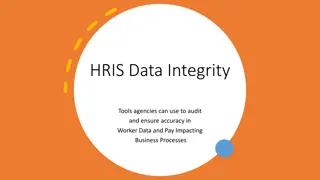Rationalization of statistical data exchange between national and international agencies
The discussion revolves around rationalizing statistical data exchange processes between national and international agencies, focusing on the challenges, principles, and proposed strategies to streamline reporting and dissemination. Key points include the complexity of data flows, burden of international reporting on National Statistical Offices (NSOs), and ways to enhance synergy for efficient data sharing. The aim is to reduce redundancy, improve data consistency, and empower users through structured dissemination practices.
Download Presentation
Please find below an Image/Link to download the presentation.
The content on the website is provided AS IS for your information and personal use only. It may not be sold, licensed, or shared on other websites without obtaining consent from the author. Download presentation by click this link. If you encounter any issues during the download, it is possible that the publisher has removed the file from their server.
- Statistical data exchange
- International reporting
- Data dissemination
- Efficiency improvement
- NSO burden
Presentation Transcript
Rationalization of statistical data exchange between national and international agencies Pacific Statistics Methods Board May 2023
Outline Statistical dissemination and reporting A complex mesh of data flows Tracks for rationalizing data exchanges The burden of international reporting Way forward Q&A 2
A complex mesh of data flows Example: International Merchandise Trade Statistics (IMTS) Varies across PICTs Monthly press releases and publication of downloadable Excel files. Significant volume of ad hoc requests from private and public sector for data related to specific commodities. Send data to international agencies f.i. SPC, IMF, World Bank, ADB, Risks of inconsistency of information published on different channels, in particular when data is copy-pasted several times or when it is revised and made available on channels that cannot be updated (such as e-mail). Cost linked to redundancy of data preparation tasks for different dissemination products and to the treatment of often significant number of ad hoc requests. 4
Rationalising data exchanges Some dissemination principles can help addressing issues mentioned: Single version of the truth Maintain a single reference version of disseminated data. Publish once, re-use many times Base all dissemination products on a reference dissemination database. User empowerment Reduce the cost of handling ad hoc requests by enabling self-service through the publication of structured and sufficiently detailed data. 5
The burden of international reporting NSOs are faced with requests from a range of international and regional agencies in multiple forms: questionnaires, templates, production of SDMX-compliant files etc. There is generally a major overlap between these requests and national statistical products disseminated for national purposes. There is generally a major overlap between requests from different international agencies. 6
Way forward Proposal is to discuss principles and define a strategy for improving synergy between national dissemination and international reporting, and across reporting to different international agencies. Explore possible opportunities offered by the Pacific Data Hub to reduce the burden of international reporting on NSOs (and also possibly the cost of ad hoc requests), using the PDH as one-stop shop for structured and detailed regional datasets about the Pacific. 7
Q&A Thank you ! Denis Grofils Phil Bright Manager Statistics Infrastructure and Dissemination Statistics for Development Division philb@spc.int Statistics Advisor Data Systems Statistics for Development Division denisg@spc.int 8
